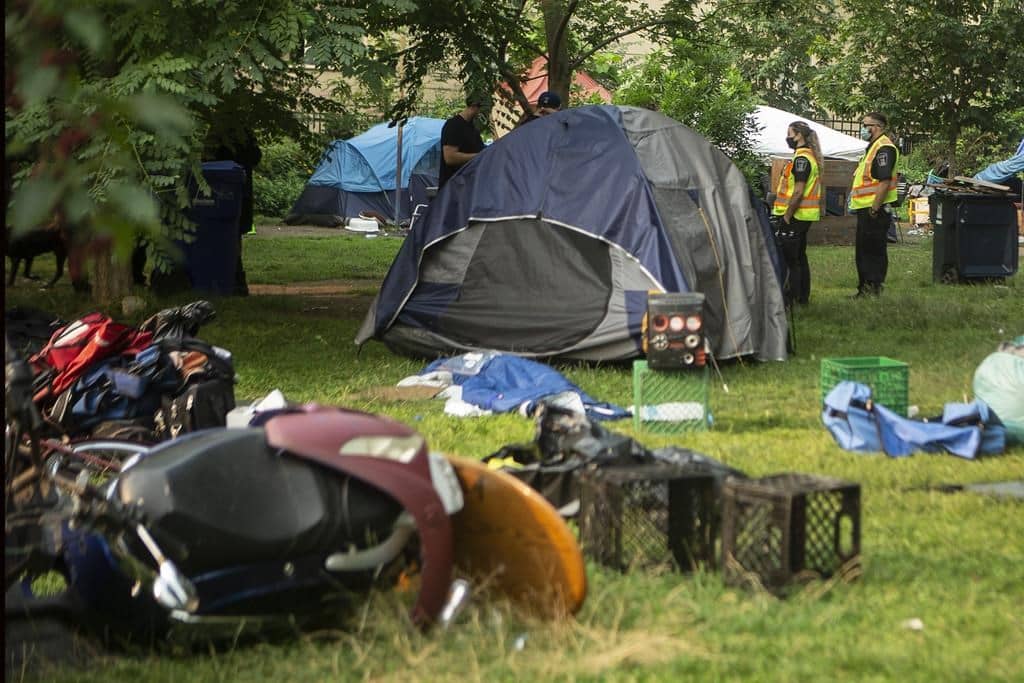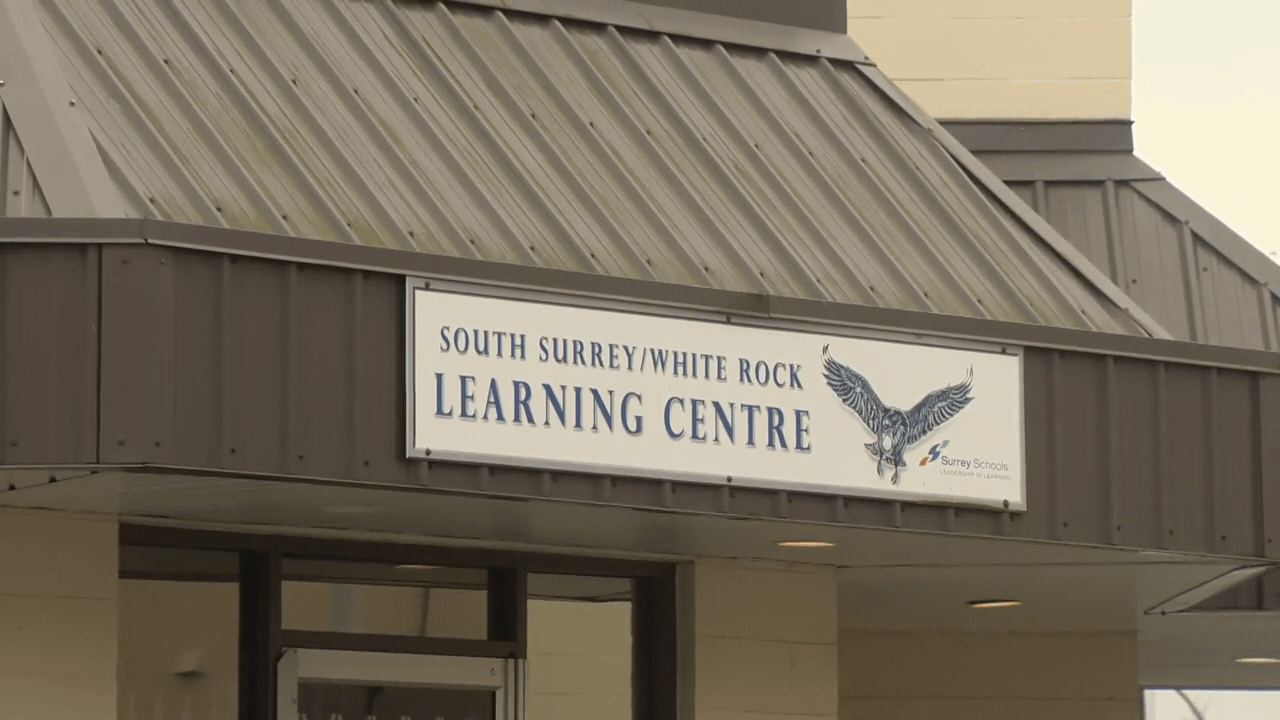Sean Horrell walked into the wilderness holding a tray filled with hot foods, water bottles, juice cartons and meals for a group of people living in a small London, Ont., homeless encampment. A reddish dog waved its tail and barked at him as he approached the tent. Four persons departed their makeshift homes to take the meal he had prepared as Horrell called out names. Later in November, it was a cloudy day with heavy clouds and a mild rain, which made it feel even colder. ” Do you have any spring clothing”? asked a girl wearing a black sweatshirt with the words” Great Vibes” written on it. You can follow him as he walked through muddy foliage to a car in a nearby parking lot where they tried on jackets, gloves, and boots. He then smiled,” Yes, you have to wander with me.” ” On days like today, where it’s raining or as the temperature gets worse, it means so much more that we show off and we come to them”, Horrell said. Some Ontarians are divided on how the issue may be handled in the wake of continuous housing, addictions, and mental-health crises because it frequently means when you need power and a hot meal when you’re tired out here. However, Horrell and his team at 519Pursuit, a non-profit firm that assists unemployed people in London, are determined to keep delivering warm meals and products to people living in tents five days a week. Horrell’s schedule is almost the same every time. 3: 17
Ford introduces act to destroy homeless encampments, increase medicine penaltiesIn the night, he drives to a store creating where 519Pursuit keeps donated items including sleeping bags, drinks, snacks and pet food. Finally, he and a group of individuals pack their food and beverages in plastic bags before heading out in various directions to deliver aid throughout the area. The government of Premier Doug Ford recently passed legislation that would give more authority to the police and municipalities clearing encampments out of public parks, according to critics who claim this did more marginalize an now underrepresented group. The legislation aims to make it easier for those who frequently violate theft laws and use illegal drugs in community. However, it’s unclear when that will become effective because the legislature won’t be back from its wintertime break until March 3. The proposed legislation is “ineffective, expensive, and cruel,” according to the American Alliance to Stop Homelessness. ” The only way to address poverty is with houses”, it said in a news release. Because there is no better way to stop encampments, according to Horrell, may continue to be used as a “harm decrease” measure for the time being. ” Encampments are necessary right now because the system itself is inundated, there aren’t enough ( shelter ) beds”, he said. The premier also announced an extra$ 75.5 million funding for homelessness prevention initiatives, including$ 50 million for affordable housing and$ 20 million to increase shelter capacity.” If there is a choice between having no place for people who are experiencing homelessness and having allocated places, I think it is an apparent choice,” the top said. Horrell said the issue has always been a “double-edged sword”. Encampments offer the homeless people support and a sense of community, he said, but they also pose challenges for local businesses and residents. A man walking his dog close to an encampment approached Horrell as he spoke with The Canadian Press, and he said he enjoyed talking to a couple in one of the tents while bringing them food and supplies. He called both of them “good” people. However, he also heard from an elderly woman who complained that her shoes had been taken from her property and quickly pointed the finger at people in a nearby camp, who later refuted the accusations. A recent survey of provincial opinion on the subject shows that there is a division. The Abacus Data survey, commissioned by the Canadian Alliance to End Homelessness, asked 1, 500 adults about encampments and homelessness. A relatively low percentage of respondents in Ontario favored a heavy-handed approach to clearing them, compared to the overwhelming majority of respondents who expressed some level of concern over encampments. Only 11 % of respondents were in favor of stronger law enforcement measures, compared to 66 % of respondents who said they were concerned about encampments in their communities. According to the Association of Municipalities of Ontario, there were at least 1,400 encampments in cities and towns across Ontario in 2023. Trending Now
Engineer who worked on the technology he helped create and raised legal concerns has passed away.
Canada Post says’ significant’ backlog will be cleared before Christmas
The City of London said around 200 people currently live in 105 tents and another 100 individuals are completely unsheltered. According to Spokesperson Andrea Rosebrugh, the city’s approach to encampments is reactive, meaning any removals are made based on complaints and subsequent evaluation of the sites. She also said the city’s 396 shelter spaces are always at capacity. In a statement, Rosebrugh said,” We continue to approach encampments in our city with compassion and a desire to help those who are living in isolation.” In Canada’s most populous city, there are around 450 tents across more than 100 parks, according to City of Toronto officials. Despite being applauded, Toronto Deputy Mayor Amber Morley expressed concerns about the proposed provincial legislation. She continued,” I do believe that we must be really thoughtful and taken into account in terms of the solutions that we’re working together,” adding that escorting people out of their tents before offering them shelters won’t solve the issue. When we talk about clearing encampments, the obvious question is,” Where are we clearing the individuals within those encampments to go?” At a recent press conference, Morley spoke about the city’s shelter plans. Michelle Boissonneault, another outreach worker at 519Pursuit in London, who has previously struggled with addiction and homelessness, also raised the issue.” These are human beings, and clearing people that are residents of our city for me is not a reasonable or respectful thing for us to be talking about.” Boissonneault claimed she first used drugs as a teenager and spent years living on the streets. ” I never felt the need to take care of myself”, she said. ” I just didn’t care, like my humanity had been absolutely ripped from me. Boissonneault claimed she has been sober for two and a half years and now resides in her own apartment. She makes three trips to the neighborhood encampments each week to assist those going through what they have personally gone through. She claimed that removing the camps will only lead to more people walking on the streets, which could only worsen the situation. Horrell said that despite his main duties of making sure people in encampments don’t go hungry and have appropriate clothing to withstand harsh weather, he also connects them with shelter services and addiction counseling. He said what he does is emotionally exhausting. He claimed that a woman he knew at an encampment recently committed suicide, and his voice sank into a sob as she confessed. He and a few other outreach workers discovered the remains of a man who had died in a tent after using drugs alone two years ago. He claimed that despite the emotional strain, he claims that he enjoys working because it makes him “feel good.” Horrell also claimed that his own recovery from drug addiction has taught him a lesson. ” I can’t save people, only people can save themselves, but in order to do that you’ve got to be cared for and you got to feel like you’re worth fighting for”.


